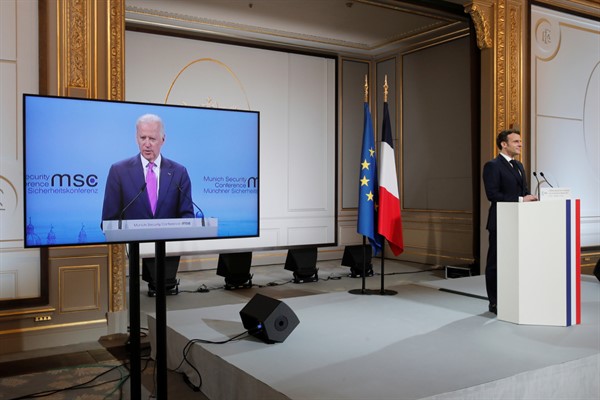“First thing I’m going to have to do, and I’m not joking,” candidate Joe Biden said last September in a campaign interview about America’s European allies. “If elected I’m going to … get on the phone with the heads of state and say America’s back, you can count on us.”
In the end, he delivered his franchise tag line not by phone, but in a video address to a “special edition” of the Munich Security Conference during his first round of trans-Atlantic diplomacy last week. And he added a slight twist: “America is back. The trans-Atlantic alliance is back.”
The words signal a welcome shift to European leaders who weathered the storm that was the presidency of Donald Trump. Biden represents the revival of a more conventional and predictable American approach to its closest allies and partners. But as many observers have been quick to point out, the trans-Atlantic alliance that Biden is returning to is in many ways not the same one he knew as vice president.

